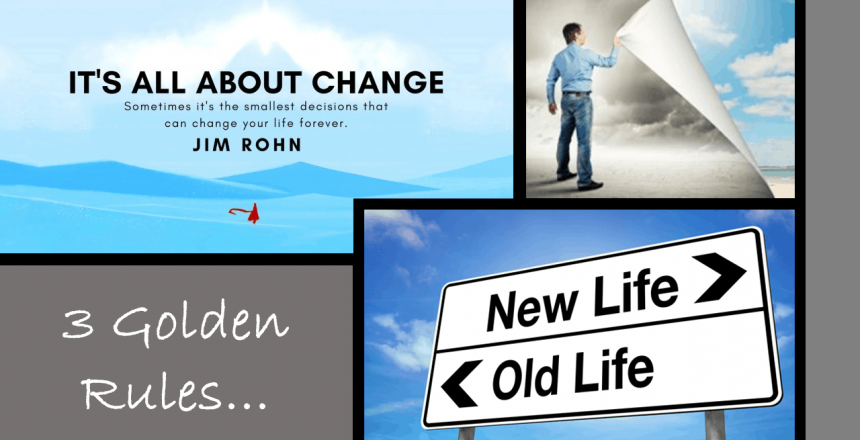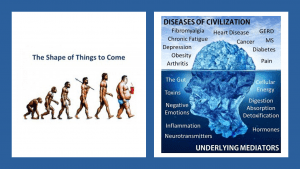The Wellness Practice™ (a program developed by our colleague Dr James Chestnut) has defined the 3 Golden Rules of Personal Change.
This is all about creating personal change in our lives without pressure or feelings of failure.
It is also about getting away from a ‘cold turkey’ mentality as regards making changes in one’s life, and not ‘beating oneself up’ if you fall off the wagon with your desired lifestyle change.
These Golden Rules are phenomenally important. They fit within our Vital Life Key #4 which is aimed at changing the way our thoughts and feelings impact our life and harnessing them to live better.
The 3 Golden Rules are:
1. Add Healthy Choices First
- Additive behaviour change is about making change first by adding in healthy behaviours and ‘linking’ them to the behaviours you want to change.
- The model is linked to how the brain chemical Dopamine is triggered/used by the body in response to ‘pleasurable’ activities
- Over time (sometimes as much as a year or more) you gradually reduce or remove the behaviour you want to change; however this is ONLY done after the body had built up a link of Dopamine release to the healthier behaviour.
- This removes the psychological state of deprivation or the stigma of sacrifice that often leads people to ‘break’
2. Empower With Choices and Remove Fear of Change
- If you offer or create multiple choices there is not a feeling of being ‘forced’ into change.
- The person who is seeking change makes the decisions about what they are willing to change, by how much and in what timeframe.
- Fear of Change is one of the primary hurdles to people changing – if they can be supported to overcome these fears by slow, steady, empowered steps the chance of successful behaviour change is greatly improved.
3. Create Success Paradigm – There is NO FAILURE, only successful FEEDBACK (Wisdom)
- The power of the human mind to be ‘negative’ is profound.
- If there is a belief that “I have failed” or “I am no good” or “I am unworthy” and this is reinforced by experiences of lapse, this can be a powerful motivator to keep the status quo.
- If people seeking change understand that a lapse simply indicates feedback about how NOT to implement a change, or that NOW is not the time, or that it provides strategies for how to achieve more next time, this also increases the chance of successful behaviour change.













